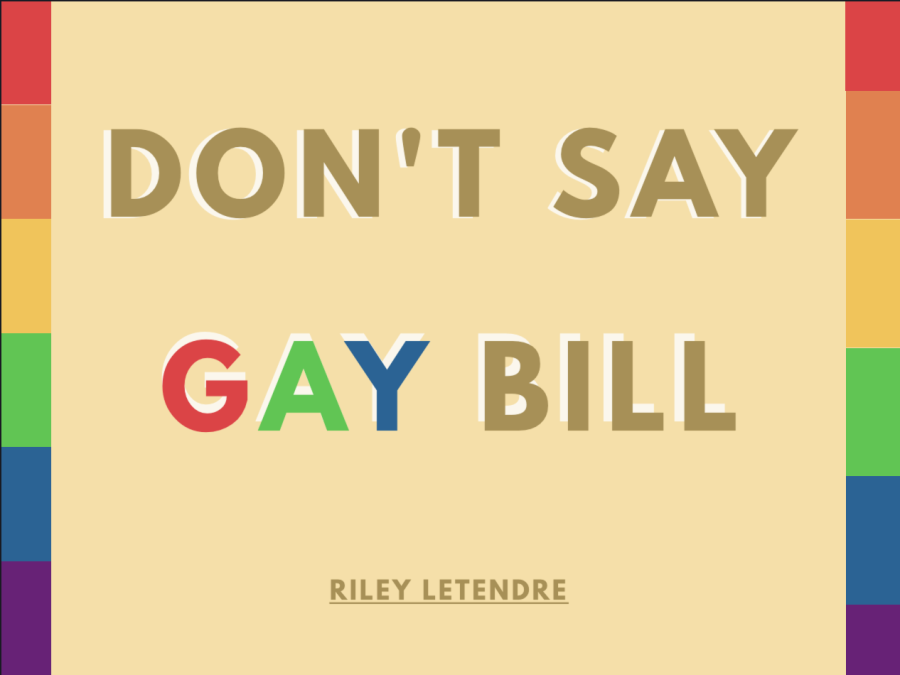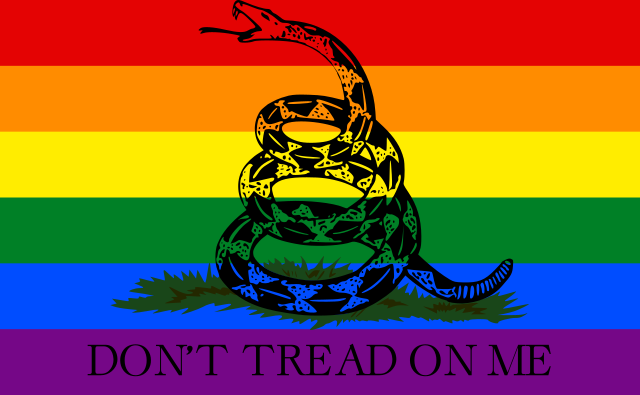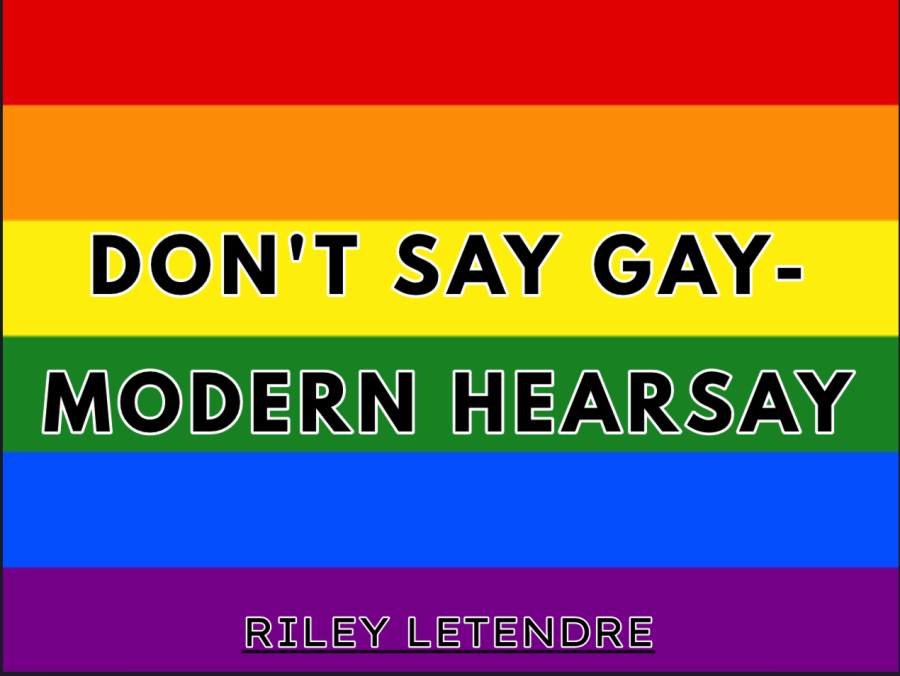The Florida- “Don’t Say Gay “Bill is moving through the legislature. What does this mean?
Don’t Say Gay Bill
March 7, 2022
“Don’t say gay” is a phrase that is being used as the nickname for a new unnamed Florida bill, which has received backlash on a national level, often deemed as dangerous and hateful towards the LGBTQ+ community by its critics. The title lends itself to a sense of fear-mongering, but is the bill as bad as it sounds?
What is the bill?
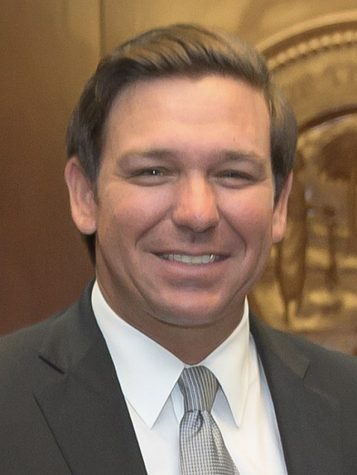
The bill, currently titled HB 1557 or the Parental Rights in Education Bill, has a few changes it intends to make to the current state statute 1001.42. In relation to its nickname, schools will not be allowed to “promote” identifying as LGBTQ+ or supporting LGBTQ+ issues in class discussions, especially in primary grade levels. Discussions past this age group must be deemed “age-appropriate.”
The second part of this bill is that parents must be notified if their child comes out as LGBTQ+ to any staff member, as they don’t want to prevent parents from knowing about their child’s mental health. According to CBS News, “…the bills would extend to student support services, including counseling, and would require school district personnel to give parents all information related to a student’s “mental, emotional or physical health or well-being…”
If any parent finds that their school violates these rules, they can bring an action against the district. Every school district’s training materials must fall under these guidelines. If the bill is enacted, standards for every district and the Department of Education must be updated by June 30th, 2023.
Critics/Supporters
So far, there has been a mix of backlash and support for this bill. Within the state of Florida, Governor Ron DeSantis has stated his support for the bill and what it stands for – “We’ve seen instances of students being told by different folks in school “oh you know…don’t pick your gender yet, do all this other stuff,” they won’t tell the parents about these discussions that are happening. That is entirely inappropriate.”
Of a similar opinion, House Representative Joe Harding – responsible for introducing the bill – claims “…the measure is about “empowering parents” and improving the quality of life for the state’s children.”
Groups like The Trevor Project have come forward to condemn the bill, and even President Biden and the White House have shown they are against the contents of the bill. White House Press Secretary Jen Psaki said “conservative politicians in Florida rejected those basic values by advancing legislation that is designed to target and attack the kids who need support the most.”
More broadly, this bill is following a greater trend in anti-LGBTQ+ legislation, like Texas allowing investigations of adults who allow transgender children to present with their desired expression and use their desired pronouns. Nationally, there are voices calling for similar actions in other states.
Where The Bill Stands
…supports the bill he authored. — Representative Harding
Following the house meeting, Florida State Senator Jeff Brandes moved to make an amendment to the bill, hoping to replace the use of “sexual orientation or gender identity” with “human sexuality or sexual activity.” While this would remove the idea of censorship only for the LGBTQ community, there is no affirmation that this change would pass – Representative Harding claims he “…supports the bill he authored.”
Conclusion
In the last few days, the bill has passed the last Senate committee before it faces the final floor. In the coming weeks, this bill will face the floor of the Senate and the eyes of the greater public as the verdict will come. Either way the Senate rules, there will be a lot of conversation both in support or against the outcome. Florida will either be a trendsetter in terms of this form of educational legislation, or it will deviate from the existing national agenda.
Wikipedia Commons (Universal Domain)
“Don’t Say Gay” Bill
Florida Legislation Attempts to Silence the LGBTQ+ Youth
Students and teens in Florida have taken a stance on the ‘Don’t Say Gay’ Bill to make their voices are heard and to ensure that LGBTQIA+ students will have the ability to feel validated and safe in their school environments. The bill prohibits “classroom discussion about sexual orientation or gender identity” in Florida’s primary schools. The ‘Don’t Say Gay’ Bill was filed in early January and passed in the Senate by the education comitee on February 8th. A Florida Senate committee has approved the measure and the bill is now headed to the full floor to be voted on. It is suspected that the bill will pass the legislature quickly to be signed by Governor Ron Desantis. If Florida legislators pass the bill it would be put into effect on July 1. This would then require all school districts’ plans to be updated by June 30th of 2023.
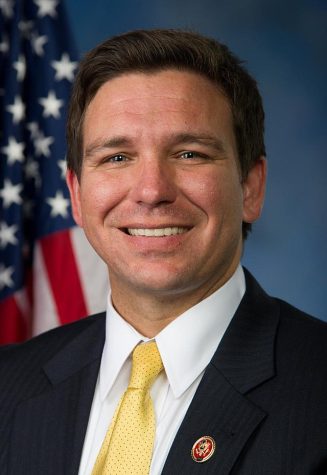
Many students and educators are concerned about the bill’s implications and what will happen to LGBTQIA+ youth when they lose what some would consider to be a safe-haven and environments where they can be open about their identity and sexualities. Some students in the community are not supported at home or do not have the ability to be open about gender and sexuality which makes their educators or schools a place to be validated and accepted. Democratic Representative Carlos Guillermo Smith discusses the bill’s implications and how “This bill goes way beyond the text on its page. It sends a terrible message to our youth that there is something so wrong, so inappropriate, so dangerous about this topic that we have to censor it from classroom instruction.” Smith highlights how the bill’s efforts to silence youth and censor these discussions will cause further outrage and protests from student youth and educators across the state.
Florida students are making their voices heard by organizing protests against the bill and advocating for the right to hold discussions of identity and sexuality in classrooms. Many students who participated in the protests and rallies voiced their concern and fear for what may happen if the bill is passed and put into place. Jack Petocz, an openly gay seventeen-year-old junior at Flagler-Palm Coast High School describes how proud he is of himself and those who are also protesting the regressive bills. He says “We must let our politicians know that no matter how hard they try, they cannot suppress our identities or silence our voices.” Petocz was suspended from his school indefinitely for being the one to organize a walkout.
Another student, at Jacksonville’s Lavilla School of the Arts, thirteen-year-old Bianca Alvarez created a petition to voice her concern and discomfort towards the bill. Alvarez considers herself to be a strong ally of the community and she states that, ‘I wanted to use my voice to speak out against something that I didn’t feel was right at all.” Alvarez ended up gathering over 300 signatures which was not far from her goal of 500. These students are only a couple of the many others who have made their voices heard.
On a more concerning note, it has been reported that there is a growing push for widespread legislative actions limiting the discussion of LGBTQIA+ identities and sexualities in the classroom. As far as this goes, the Freedom for All Americans nonprofit group discusses how previously, it didn’t record LGBTQ school policy bills and this year, in only two months, conservative state legislators have filed for over 170 bills limiting LGBTQ+ rights compared to last year’s total which was 139. Also last year, three states passed bills that gave parents the ability to remove their child(ren) from any curriculum or lesson that discusses gender identity or sexual orientation.
The bill itself is flawed and has been frequently misinterpreted due to its vagueness. The bill makes the incorrect assumption that children have the ability to have open discussions about gender identity and sexual orientation in their own homes. Apart from this, people who have predicted the bill’s failures if it is passed, criticize the bill’s language which makes the legislation unclear. Some critics even argue that the legislation’s broad language could enable parents to sue districts and open them up to lawsuits regarding any discussions of gender identity or sexual orientation that they deem to be ‘inappropriate’.
It is crucial that legislators listen to the voices of the future. Jack Petocz, the junior at Flagler-Palm Coast high school mentioned previously, describes how school is a safe space for students like him and it would be a shame to see that slip away. Petocz says “We’ve made a lot of tremendous progress with open discussion of gender identity and sexual orientation and stopping the stigmatization of it,” he says. “This will cause stigma to return to LGBTQ+ people and it will cause this divide to return.” After observing students like Jack and other brave youth take a stance on the implementation of the bill and their education, it is important to continue progressing towards a future where LGBTIA+ youth are accepted and listened to in the classroom, rather than implementing the bill that would cause a huge regression in civil rights.

Sophia Lowrie is a senior at Marco Island Academy and the Executive Editor for The Wave. She loves baking and cooking for friends and family and reading...
Managing Editor, Riley Letendre, on the “Don’t Say Gay Bill.”
Don’t Say Gay- Modern Hearsay
My Opinion
HB 1557, or the “Don’t Say Gay” bill is discriminatory toward LGBTQ+ individuals and can potentially put thousands of LGBTQ+ youth at risk. For many, school is a safe space where an individual can be themselves, and find support from teachers and peers. Through this bill being signed into law, students in Florida will not have this support from their peers, and teachers and staff will be required to tell their parents, even if that is not wanted by the child. While the bill does say the exception to this would be if the child lives in an environment where abuse is possible, there are a lot of situations where abuse is not known by a school community.
In addition to the potential problems of abuse in the home due to a child’s identity, this part of the bill takes away the individual’s autonomy. No longer would the child be in control of who they tell, when, and how. It is important for these individuals to be able to make their own decisions in regards to “coming out,” as they know best about their own feelings, and likely know better about those around them outside of school than teachers or other staff members would.
Part of the problem with this legislation is the idea that conversations about LGBTQ issues must be age-appropriate. There is no designated standard of appropriateness outlined in the bill, which leaves it up for interpretation. This could hurt school districts because there are no specific guidelines, yet they could be sued for allowing too much to be said on the issue. Would these conversations being age-appropriate just mean students can’t talk about being attracted to the same sex or being transgender, or would it extend to discussing friends and family that identify as a part of the community? There are no restrictions given, and people have a range of opinions on what is appropriate for children of different ages.
In terms of speaking about LGBTQ+ family members, Representative Harding claims that the bill won’t stop these conversations, however, nothing in the text of the bill supports this or designates this as true.
The politicians and groups in support of this bill also have a misconstrued idea of what LGBTQ+ identification is like. Governor DeSantis claims that transgender individuals “pick” their gender, which is directly discriminatory toward these individuals, as science backs that identifying as transgender is not a choice, but a journey of self-discovery. No one would ever “pick” or “choose” to be transgender or LGBTQ+ as he says because this identification brings about a lot more hardship than people need – that’s why these groups were silent for so long.
If the politicians behind creating the bill and supporting it don’t understand these fundamental, scientific truths in regard to transgender people, how can we trust that the bill is meant to help and not hurt these marginalized people?

Delving further into my own life, I have been raised in a family where being LGBTQ+ is accepted and supported, even despite varying religious and political beliefs. I have LGBTQ+ identifying aunts, uncles, and sisters. If I were a younger child in Florida today, I could potentially be shut out from telling the truth about my close family members and their lives because others could be offended by it. What baffles me is the people pushing this bill and the idea of “appropriate conversations” are often those that say liberal and LGBTQ+ people need to “stop being so offended.” Why do we have to be silent about people’s real lives just so you are not offended?
This bill ignores the truth. The truth that anybody should be able to see is that 12% of the world’s population is estimated to identify as LGBTQ+. And whether an individual believes that it is right or wrong is a separate issue, but there is no denying that these people exist, so why should they be shut out of a school environment? By doing so with this bill, politicians are doing a disservice to all children in Florida.
In 2019, GLSEN performed a survey of Florida students and determined Florida high schools “…were not safe for most lesbian, gay, bisexual, transgender, and queer (LGBTQ) secondary school students.” Since the introduction of this bill, it is unrealistic to estimate that Florida high schools have only become less safe for LGBTQ+ teens.

Riley Letendre is a senior at Marco Island Academy and the Managing Editor of The Wave. She enjoys writing in literally all of her free time and plans...

